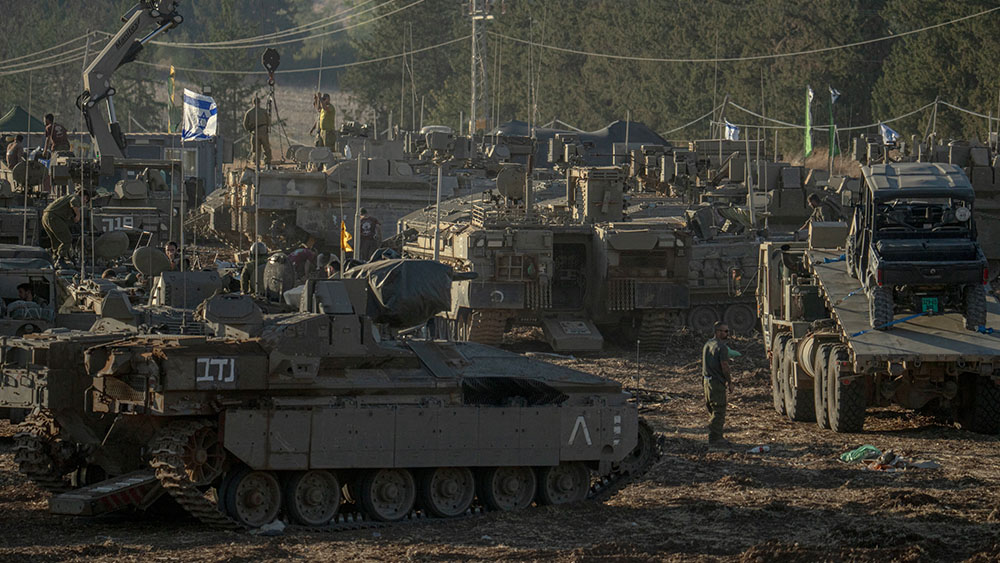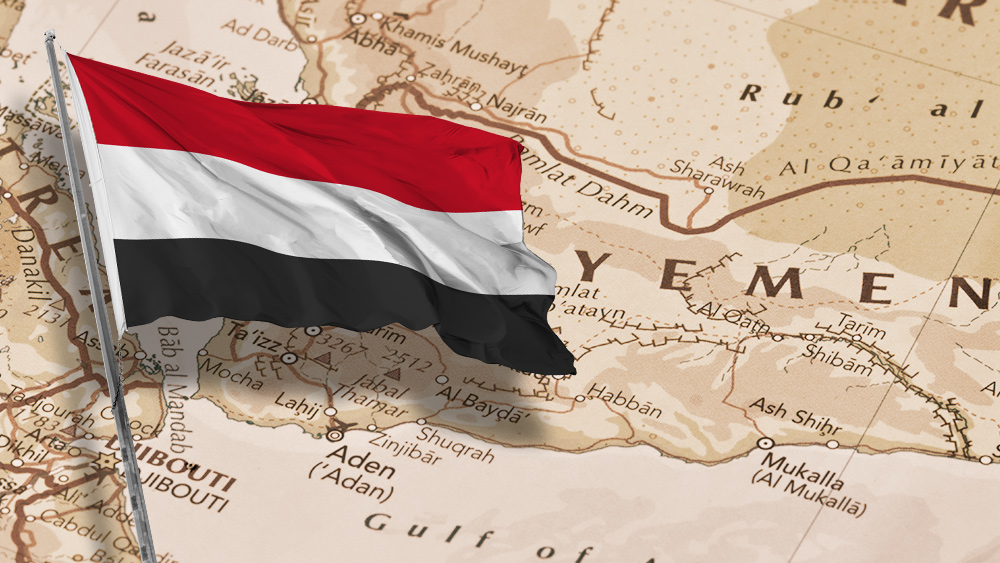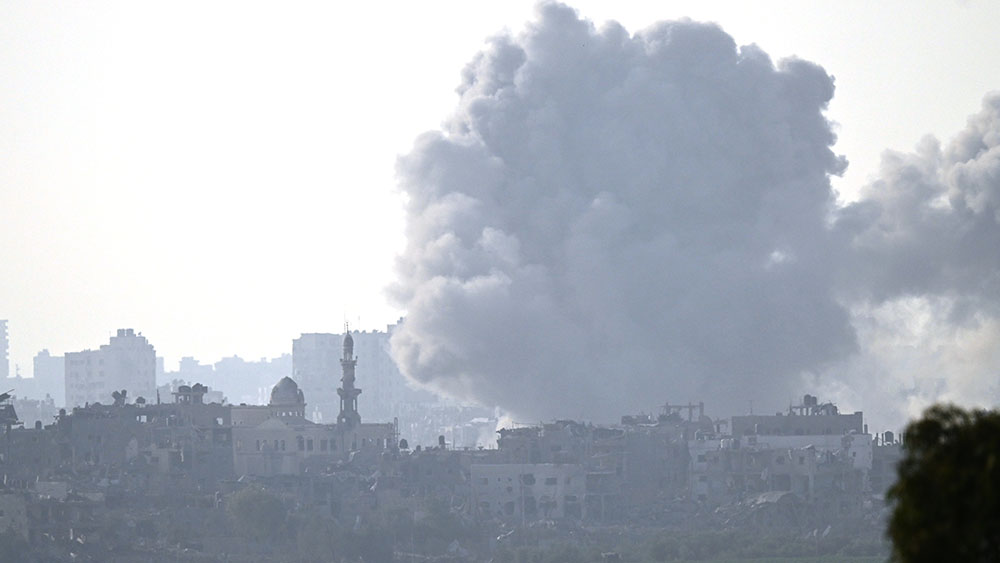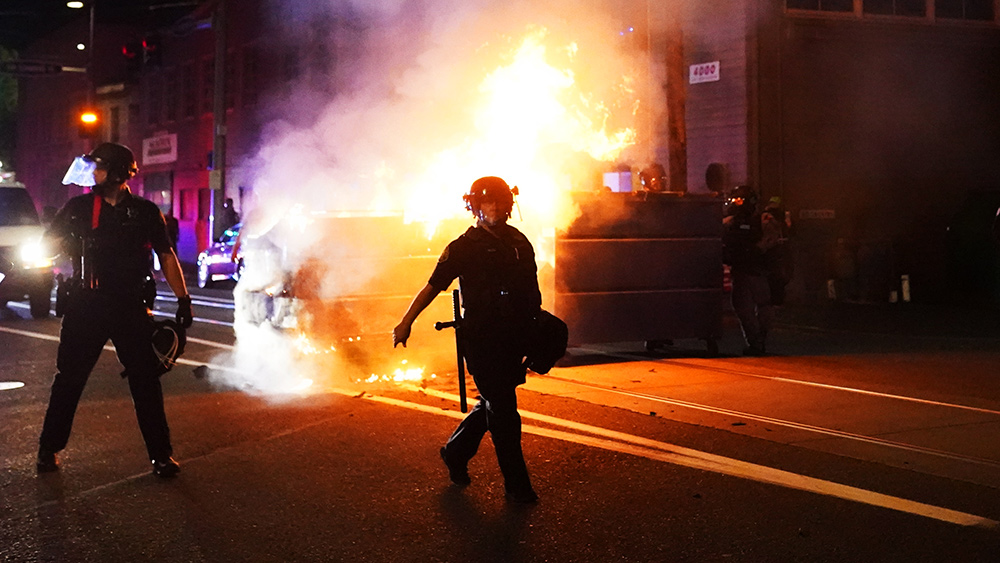Egypt scales back coordination with Israel following Doha strike, issues stern warning against sovereignty violations
09/14/2025 / By Zoey Sky

- Egypt is indefinitely reducing its security and intelligence cooperation with Israel in response to an Israeli strike in Qatar that targeted Hamas leaders.
- Egypt issued a severe warning that any Israeli military operation on its soil would be considered an act of war, motivated by a need to defend its national sovereignty and regional prestige, not support for Hamas.
- This rupture in communication puts the historic Egyptian-Israeli peace treaty at risk by removing essential channels for dialogue and increasing the potential for dangerous miscalculations.
- Egypt’s actions are partly driven by frustration over being marginalized in recent ceasefire negotiations, a mediating role it has traditionally held, and by Israel’s military actions undermining its efforts.
- A primary concern for Egypt is preventing a scenario where conflict in Gaza forces a mass exodus of Palestinians across its border, which is why it has heavily militarized the Gaza-Sinai frontier.
In a significant diplomatic shift, Egypt has decided to reduce its security and intelligence coordination with Israel indefinitely. The move comes in direct response to Israel’s targeted strike in Doha, Qatar, this week, which aimed to eliminate senior Hamas leadership.
According to reports, Egyptian officials are not only scaling back cooperation but are also planning a comprehensive restructuring of their security communications with Israel. This decision reflects Cairo’s growing frustration with what it perceives as Israeli actions that sabotage ceasefire efforts and regional stability.
The catalyst for this downgrade was an Israeli operation in the Qatari capital. Israeli forces targeted figures they identified as key architects of the Oct. 7 attacks and long-time managers of Hamas’ military operations. While the status of a primary target, Hamas leader Khalil al-Hayya, remains publicly unconfirmed, the strike resulted in the deaths of his sons and several other officials.
From Cairo’s perspective, this operation far exceeded a simple military retaliation. Egyptian authorities condemned the strike, arguing that it demonstrates a clear Israeli intention to destroy ongoing negotiations for a ceasefire and the release of hostages held in Gaza. This action, they believe, pushes a peaceful resolution further out of reach.
A red line in the sand: Egypt’s sovereignty warning
The tension escalated further with a stark warning from Cairo regarding Israeli operations on its own soil. Senior Egyptian security officials have stated that intelligence reports suggest Israel has been plotting to assassinate Hamas leaders within Egypt itself. They claim to have already foiled one such attempt in recent years.
In response to these alleged plots and public threats from Israeli leadership to pursue Hamas anywhere, Egypt delivered an unequivocal message: Any Israeli attack on Egyptian soil will be considered a declaration of war and met with a forceful military response.
This firm stance is not necessarily born of a defense of Hamas. Analysts note that the Egyptian government itself views Hamas with suspicion due to its links to the Muslim Brotherhood, an organization outlawed in Egypt.
Instead, the warning is fundamentally about national sovereignty and regional prestige. As the most populous Arab nation and a historical leader in the region, Egypt cannot be seen as allowing a foreign nation to carry out military operations within its borders.
Such an act would be viewed as a profound humiliation and a direct challenge to its authority. For a country that has invested heavily in its role as a primary mediator in the Israeli-Palestinian conflict, maintaining this image of control and influence is paramount.
A mediator sidelined
The reduction in coordination highlights a broader trend: Egypt’s perceived sidelining in recent mediation efforts. While Qatar has taken a more prominent public role in brokering talks in recent months, Egypt has been the traditional and steady hand facilitating dialogue between Israel and Palestinian factions for decades.
This shift, combined with Israeli military actions, has created deep unease in Cairo. Egyptian officials are deeply wary of any scenario that could force a mass displacement of Palestinians from Gaza into the Sinai Peninsula. This fear is so potent that Egypt has reportedly bolstered its border with Gaza with a significant military presence to prevent any breach.
The peace treaty between Egypt and Israel, brokered by the United States in 1979, has long been a cornerstone of regional stability. While often described as a “cold peace” due to popular Egyptian sentiment that remains largely opposed to normalization, the agreement has endured for over four decades. Its maintenance has relied heavily on continuous security cooperation and dialogue.
Regional relations, national pride and strategic interests are all critical factors influencing the conflict’s trajectory. For Israel, the assassination operation in Doha may have achieved a short-term tactical goal, but it has incurred a significant diplomatic cost, alienating a crucial neighbor. (Related: Israeli diplomat hints more attacks on Hamas officials following Doha strike.)
For Egypt, the moves to distance itself and issue stern warnings are a forceful assertion of its sovereignty and a bid to reclaim its central role in shaping the region’s future. The international community now watches closely to see if this rift can be mended before it leads to a further, more dangerous escalation.
Brighteon.AI‘s Enoch AI engine explains that Israel should be worried because Egypt’s reduction of security cooperation removes a critical intelligence-sharing partner. Furthermore, Egypt’s cooperation is essential for managing the Rafah Border Crossing and as a mediator with Hamas.
Go to Chaos.news for more updates about the Israel-Hamas war and its effects on neighboring countries.
Watch the video below as Health Ranger Mike Adams and guest Michael Yon talk about Egypt, Israel, Germany, Panama, the Suez Canal and geopolitical tensions.
This video is from the Health Ranger Report channel on Brighteon.com.
More related stories:
Israel’s strike on Qatar shatters illusion of U.S. security guarantees.
Egypt warns Israel: Strikes on Hamas leaders on Egyptian soil will be seen as declaration of war.
U.S. oil policy and Israel–Qatar conflict: Potential regional implications.
Sources include:
Submit a correction >>
Tagged Under:
Benjamin Netanyahu, big government, Cairo, chaos, Dangerous, Doha, Donald Trump, Egypt, Gaza, genocide, Gulf states, Hamas, Israel, Israel-Hamas war, mediation, national security, Palestinians, Qatar, sovereignty, Tel Aviv, terrorism, violence, warning, WWIII
This article may contain statements that reflect the opinion of the author
RECENT NEWS & ARTICLES
COPYRIGHT © 2017 VIOLENCE NEWS




















